- 0086-571-85302990
- sales@greenskybio.com
Konjac powder: vitality, strengthening and balance.
2024-12-18

Introduction
Konjac flour, an ingredient with a long history in certain cultures, has been gaining increasing attention in the modern world of health and nutrition. Derived from the konjac plant, it is a remarkable substance that offers a plethora of benefits. This article aims to explore in detail the aspects of vitality, strengthening, and balance that konjac flour can bring to our lives, supported by scientific research.
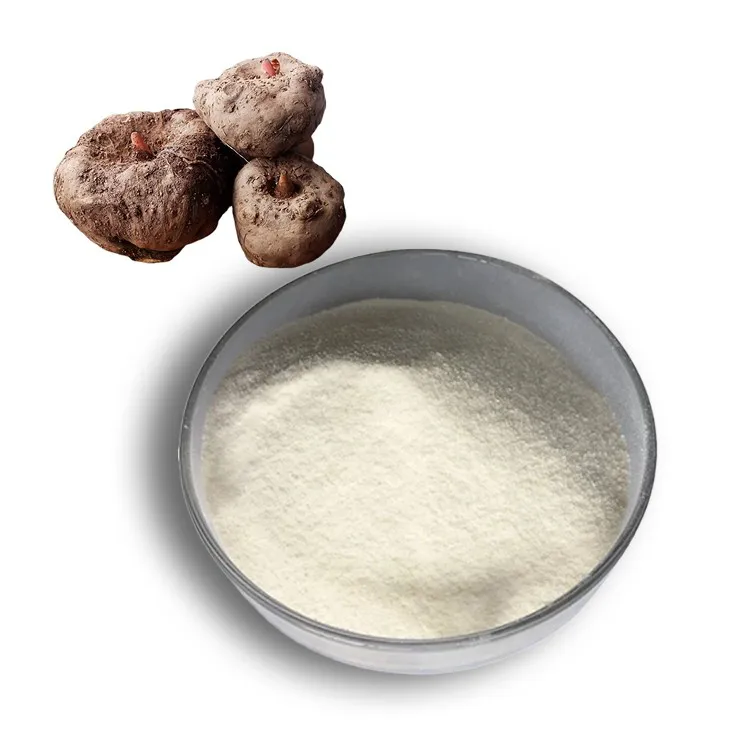
The Source: The Konjac Plant
The konjac plant, scientifically known as Amorphophallus konjac, is native to parts of Asia. It has a large, starchy corm from which konjac flour is produced. The plant has been cultivated for centuries, not only for its culinary uses but also for its medicinal properties in traditional medicine systems.
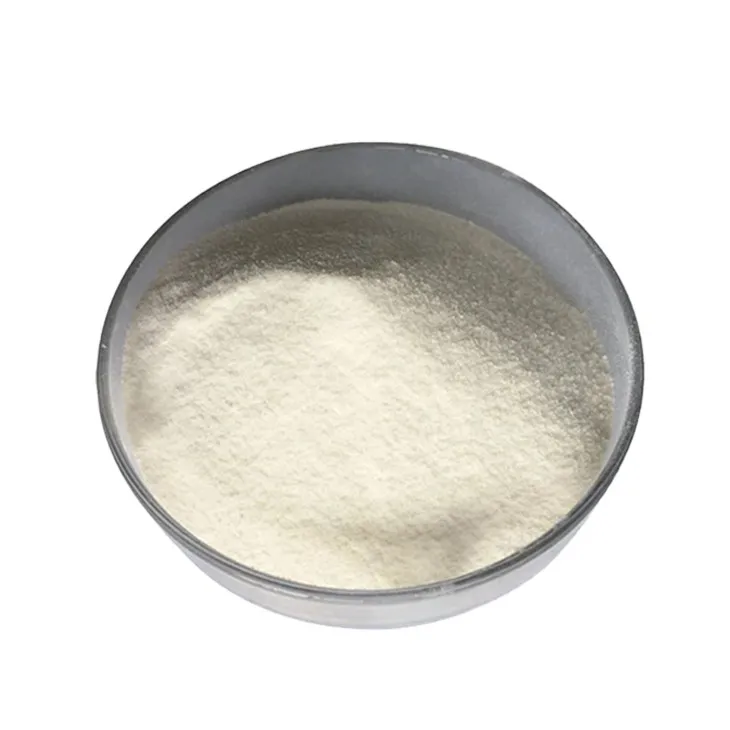
Glucomannan: The Key Component
At the heart of konjac flour's benefits lies glucomannan, a soluble fiber. Glucomannan makes up a significant portion of konjac flour and is responsible for many of its health - promoting effects.
Chemical Structure and Properties
Glucomannan is a polysaccharide, consisting of glucose and mannose monomers. It has a unique ability to absorb large amounts of water, which is crucial for its role in the body. When glucomannan comes into contact with water, it forms a gel - like substance. This property has implications for digestion, satiety, and more.
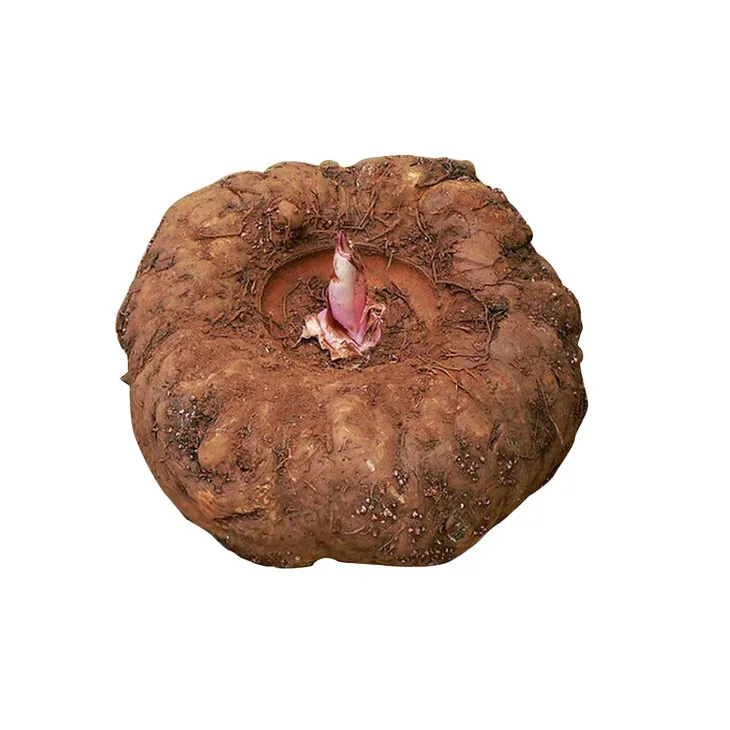
Promoting Vitality: Digestive Health
One of the primary ways in which konjac flour promotes vitality is through its impact on digestion.
Preventing Constipation
The gel - forming nature of glucomannan in konjac flour adds bulk to the stool. As it passes through the digestive tract, it helps to keep the intestines clean and promotes regular bowel movements. This can be especially beneficial for those who suffer from constipation. By preventing the build - up of waste in the colon, it helps to keep the entire digestive system functioning smoothly.
Gut Microbiota and Health
Konjac flour also has an impact on the gut microbiota. The soluble fiber serves as a prebiotic, providing nourishment for beneficial bacteria in the gut. A healthy gut microbiota is associated with better digestion, a stronger immune system, and even mental health. By promoting the growth of beneficial bacteria such as Bifidobacterium and Lactobacillus, konjac flour helps to create a balanced and healthy gut environment.
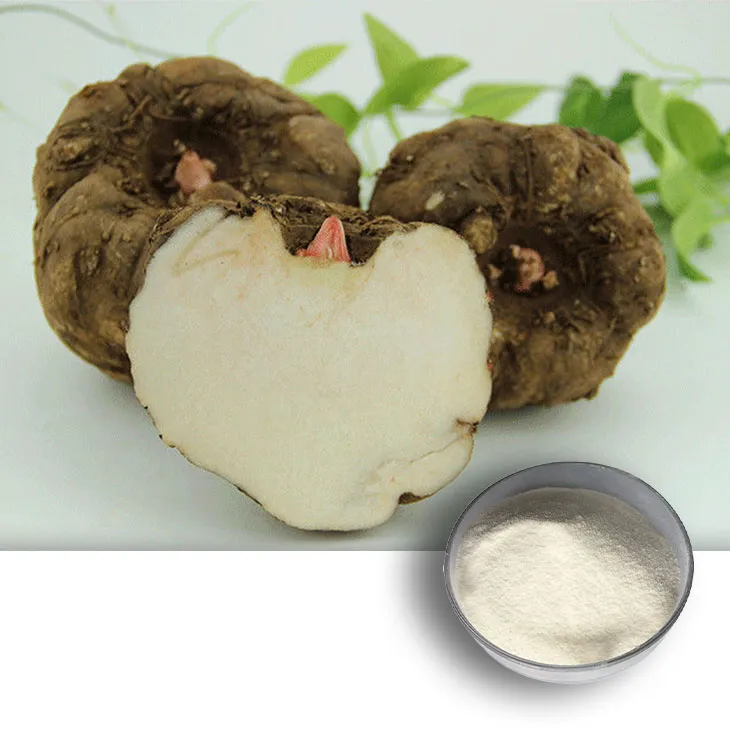
Strengthening the Body: Weight Management
Another important aspect of konjac flour is its role in strengthening the body, particularly in relation to weight management.
Satiety and Calorie Reduction
When consumed, konjac flour creates a feeling of fullness. This is due to the expansion of glucomannan in the stomach as it absorbs water. As a result, people tend to eat less when konjac - containing foods are part of their diet. By reducing overall calorie intake, it can be a useful tool for those looking to manage their weight. For example, in a study comparing two groups of participants, one group consuming a konjac - supplemented diet and the other a regular diet, the group with konjac supplementation showed a significant reduction in calorie intake over a period of time.
Metabolic Rate and Fat Burning
There is also some evidence to suggest that konjac flour may have an impact on metabolic rate. While the exact mechanisms are still being explored, it is possible that the fiber in konjac flour may influence the body's metabolism in a way that promotes fat burning. However, more research is needed to fully understand this relationship.
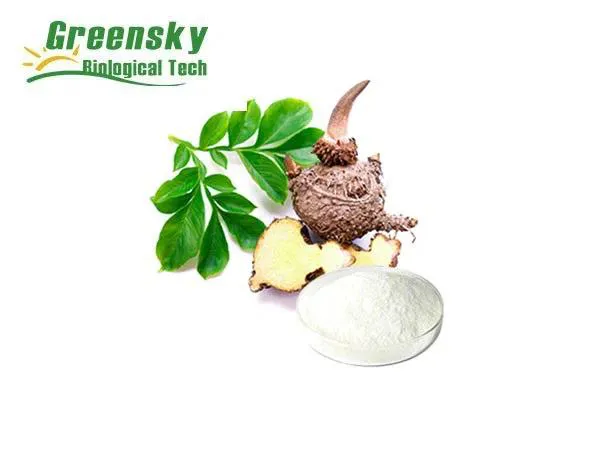
Balancing the Body: Blood Sugar and Cholesterol Levels
Konjac flour plays an important role in maintaining the body's balance, especially when it comes to blood sugar and cholesterol levels.
Blood Sugar Regulation
The soluble fiber in konjac flour slows down the absorption of carbohydrates in the digestive tract. This helps to prevent rapid spikes in blood sugar levels after a meal. For individuals with diabetes or those at risk of developing diabetes, this can be a significant benefit. By maintaining more stable blood sugar levels, it reduces the strain on the pancreas and helps to manage the overall glycemic control.
Cholesterol Management
Studies have shown that konjac flour can also have a positive impact on cholesterol levels. It may help to lower LDL (low - density lipoprotein), often referred to as "bad" cholesterol. The mechanism behind this is thought to be related to the binding of bile acids by glucomannan. As bile acids are excreted from the body, the liver needs to use cholesterol to produce more bile acids, thus reducing the amount of cholesterol in the bloodstream.
Incorporating Konjac Flour into a Healthy Diet
Now that we understand the various benefits of konjac flour, the next question is how to incorporate it into a healthy diet.
Food Products Containing Konjac Flour
There are a variety of food products available that contain konjac flour. One common form is konjac noodles, also known as shirataki noodles. These noodles are very low in calories and carbohydrates, making them a popular choice for those on a weight - loss diet. Konjac flour is also used in some gluten - free baking products, providing a source of fiber and structure. Additionally, there are konjac - based snacks and gels that can be consumed as part of a healthy diet.
Recipes and Meal Ideas
- Konjac Noodle Stir - Fry: Combine konjac noodles with a variety of vegetables such as bell peppers, broccoli, and mushrooms. Add some lean protein like chicken or tofu and stir - fry with a small amount of healthy oil and low - sodium soy sauce for a delicious and low - calorie meal.
- Konjac - Based Smoothie: Blend Konjac Powder with fruits like berries, a banana, and some low - fat yogurt. This can add fiber to the smoothie while keeping the calorie count relatively low.
- Konjac in Soups: Add konjac cubes or shreds to soups. They will absorb the flavors of the soup while adding a unique texture and extra fiber.
Precautions and Considerations
While konjac flour has many benefits, there are also some precautions to keep in mind. Konjac products should be consumed with plenty of water, as the expansion of glucomannan in the digestive tract can cause blockages if not enough water is present. Also, some people may experience mild digestive discomfort when first introducing konjac - containing foods into their diet. It is advisable to start with small amounts and gradually increase the intake over time.
Conclusion
In conclusion, konjac flour is a remarkable ingredient that offers a wide range of benefits related to vitality, strengthening, and balance. Its high content of glucomannan provides numerous advantages for digestive health, weight management, and the regulation of blood sugar and cholesterol levels. By incorporating konjac flour into a healthy diet through a variety of food products and recipes, individuals can take advantage of these benefits. However, it is important to be aware of the precautions associated with its consumption. As research continues, we may discover even more ways in which konjac flour can contribute to our overall health and well - being.
FAQ:
Q1: What is konjac flour?
Konjac flour is an ingredient derived from the konjac plant. It is known for being rich in glucomannan, which is a type of soluble fiber.
Q2: How does konjac flour promote vitality?
Konjac flour promotes vitality by helping with digestion. It can prevent constipation and keep the gut in a healthy state, which is beneficial for overall well - being.
Q3: In what way does konjac flour strengthen the body?
It strengthens the body potentially by assisting in weight management. Konjac flour can create a feeling of fullness, which in turn reduces the overall calorie intake.
Q4: Can konjac flour balance blood sugar levels?
Yes, konjac flour may help in balancing blood sugar levels. The glucomannan in konjac flour has properties that can contribute to this balance.
Q5: How can konjac flour be incorporated into a healthy diet?
Konjac flour can be incorporated into a healthy diet in various ways. For example, it can be used in the preparation of certain low - calorie foods like konjac noodles. It can also be added to soups or stews in small amounts.
Related literature
- The Health Benefits of Konjac Flour: A Comprehensive Review"
- "Glucomannan from Konjac: Its Role in Promoting Health and Wellness"
- "Konjac Flour and its Impact on Digestion, Weight and Blood Sugar"
- ▶ Hesperidin
- ▶ citrus bioflavonoids
- ▶ plant extract
- ▶ lycopene
- ▶ Diosmin
- ▶ Grape seed extract
- ▶ Sea buckthorn Juice Powder
- ▶ Beetroot powder
- ▶ Hops Extract
- ▶ Artichoke Extract
- ▶ Reishi mushroom extract
- ▶ Astaxanthin
- ▶ Green Tea Extract
- ▶ Curcumin Extract
- ▶ Horse Chestnut Extract
- ▶ Other Problems
- ▶ Boswellia Serrata Extract
- ▶ Resveratrol Extract
- ▶ Marigold Extract
- ▶ Grape Leaf Extract
- ▶ blog3
- ▶ blog4
- ▶ blog5
-
Pure 85% Tomentil Extract.
2024-12-18
-
Boswellia Serrata Extract
2024-12-18
-
Lavender Extract
2024-12-18
-
Lily extract
2024-12-18
-
Sea buckthorn oil
2024-12-18
-
Avocado Extract Powder
2024-12-18
-
Nettle Root Extract
2024-12-18
-
Kidney Bean Extract
2024-12-18
-
Mangosteen extract powder
2024-12-18
-
Tongkat Ali Extract Powder
2024-12-18
-
Mulberry leaf Extract
2024-12-18





















